#AskTheHIVDoc campaign taps Mena’s STD expertise
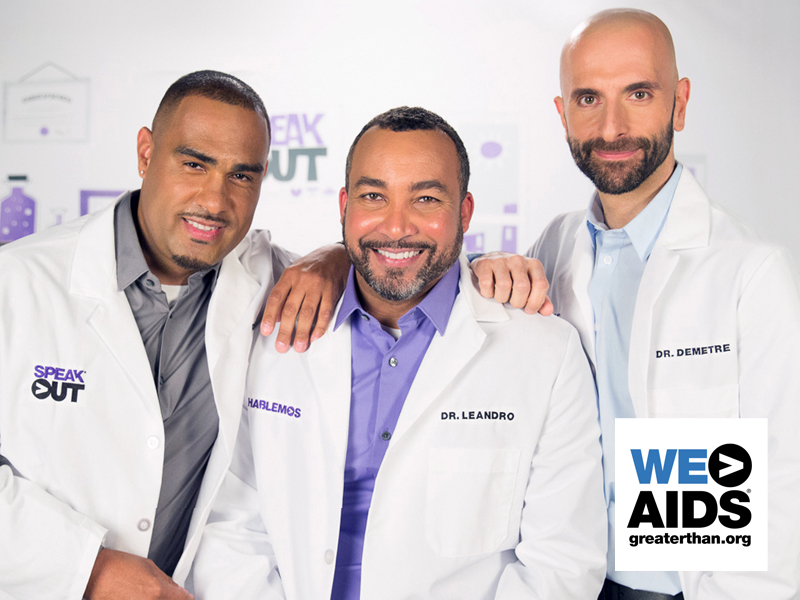
Dr. Leandro Mena considers himself a shy person. He doesn't do Facebook, and he barely tweets.
But his international reputation as an expert in the field of sexually transmitted infections has placed him in a sweeping social media spotlight. He's one of three “smart and sexy docs” answering questions on an array of topics in #AskTheHIVDoc, a YouTube-based series of short-form, question-and-answer videos in English and Spanish produced through the initiative Greater Than AIDS.
Mena, a native of the Dominican Republic and associate professor of infectious diseases at the University of Mississippi Medical Center, and HIV/AIDS experts Dr. David Malebranche and Dr. Demetre Daskalakis give frank and information-packed answers to questions about sexually transmitted diseases - questions that many men who have sex with men (MSM) might never feel comfortable asking their own providers.
“We do it in a straightforward, simple way,” said Mena, who joined the duo of Malebranche and Daskalakis in December 2015 and can be seen in the second season of #AskTheHIVDoc that debuted June 1 on YouTube. That's 23 English videos and an additional 11 narrated by Mena in Spanish. The nonprofit Kaiser Family Foundation created the branded campaign Greater Than Aids; #AskTheHIVDoc is a part of that brand.
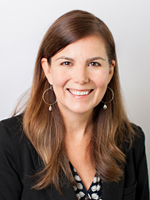
“We just fell in love with him,” said Tina Hoff, the Kaiser Family Foundation's senior vice president and director of health communications and media partnerships. “He's not only incredibly knowledgeable and skilled as a clinician, but he's a warm person who feels so deeply passionate about what he's doing. He connects with his patients. He's everything we were looking for.”
The trio takes on topics that include “Can I Get HIV if My Partner is Undetectable?” “Herbal Treatments?” “Can I Still Have Sex?” and “How Can I Find Help?” At the beginning of the season two videos, a smiling Mena tells viewers: “We're going to give you what you need.”
The tone of the videos is sometimes playful and always engaging, but the underlying messages are tough in a society that's experiencing an HIV/AIDS epidemic. In the United States, Mena says, one out of every two black MSM will become HIV positive in their lifetime. Among Latino men, that's one out of four.
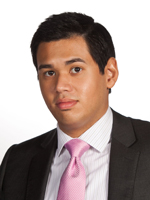
“There's an urgency to act and do something to change what might seem inevitable for a significant portion of the population,” Mena said.
Using social media as the platform for the videos “gets the message across in a very effective way for the times we live in,” Hawkins said. “A lot of people who are infected are between the ages of 15 and 24.” The first season of #AskTheHIVDoc received 731,141 views on YouTube and another 405,302 on other social and digital platforms, Kaiser Family Foundation statistics show.
The #AskTheHIVDoc messages empower not just MSM, but the caregivers whose lack of expertise in HIV and AIDS treatment leaves them struggling to answer their patients' questions and manage their overall health.
“We're in a health-care system where many clinicians don't regularly ask their patients about their sexual behavior,” Mena said. “They're uncomfortable about having a conversation about sex, and uncomfortable about discussing behaviors to decrease their risk.”
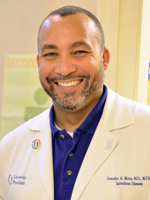
But at the same time, Mena said, clinicians like himself are trying to improve access to health care, especially to those most vulnerable to sexually transmitted infections.
The videos encourage discussions that can never be too basic - for example, the difference between AIDS and HIV, or how people can become infected when they have sex. “We talk about how often you should be tested for HIV, and what tests gay or bisexual men should have when they go to the doctor, and when they should start treatment,” Mena said. “We talk about how safe certain practices are.
“In clinic, I start by talking very frankly with my patients, and breaking things down into the language that makes them comfortable. If you do that, you have a better chance to address their health needs,” Mena said.
The three doctors also talk about PrEP, short for pre-exposure prophylaxis, a medication that works to keep the HIV virus from establishing a permanent infection. A pill that's taken once daily, PrEP targets those with an ongoing, substantial risk of HIV infection and, when taken consistently, can reduce risk of HIV in people who are at high risk by 92 percent, the Centers for Disease Control and Prevention says.
“I've talked to folks in my job and outside of my job that have been to doctors in this area who just don't know anything about PrEP,” Hawkins said. “There's a need for education when you have a patient coming to you who says I'm a sexually active gay male, and I want to get on this to protect myself.”
Brandon Brazzle of Jackson, one of Mena's patients, agrees.
“People think you have HIV, rather than these drugs trying to prevent it,” said Brazzle, 27, who is taking Truvada, the brand name of the drug that gained federal approval in the United States. “I had to explain to my family members that I wasn't HIV positive.”
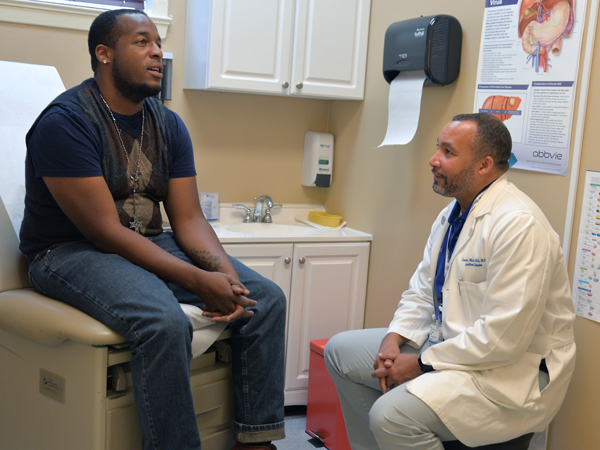
He regularly talks to friends about PrEP because it can help them with their sexual health. “It's kind of hard sometimes to take it up with your doctor, because they might not be used to seeing that kind of patient,” Brazzle said.
The first #AskTheHIVDoc videos featured just Malebranche, an internal medicine physician with Georgia-based Wellstar Health Systems who also cares for inmates at the DeKalb County Adult Detention System in Marietta, a suburb of Atlanta; and Daskalakis. But Daskalakis, assistant commissioner of the Bureau of HIV Prevention and Control at the New York Department of Health and Mental Hygiene, approached Mena about joining the team last fall when the two served as co-presenters at the U.S. Conference on AIDS.
“It was a no-brainer,” said Malebranche, who has specialty training in HIV, AIDS and health needs of the LGBT community. “The additional bonus is him being from the Dominican Republic. He can not only do this in English, but in Spanish so that we can reach a whole different audience.”
Mena said yes to #AskTheHIVDoc, but not without hesitation. “I'm kind of a shy person, but this is something important to reaching many people who might not otherwise have access to this information in a format that people can understand,” he said. “If people are educated, they will make better-informed decisions and in turn will have better health outcomes.”
“We really like each other, and it's not super subtle,” Daskalakis said. “Although we come from different perspectives, we all come to the same conclusion - to give medical information related to HIV and sexual health in a way that's digestible, fun and brief. Leandro gets it, and his comfort level on #AskTheHIVDoc is great.”
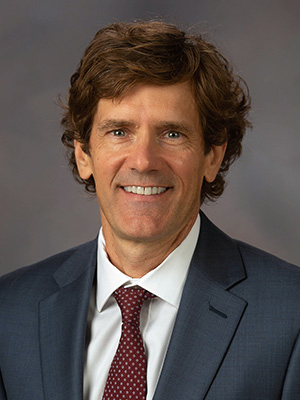
How education on MSM sexual health is delivered greatly needs improvement, said Dr. Thomas Dobbs, state epidemiologist with the Mississippi Department of Health. That agency runs the Crossroads Central Clinic in Jackson, which offers HIV testing, counseling and medical referral services. Mena serves as medical director at Crossroads, the only publicly funded clinic of its kind in the state.
“There's been a lot of effort to get the word out,” Dobbs said. But one of the challenges, he said, is that many doctors see treatment of HIV patients as a specialty field. “It really needs to be addressed as part of core health. There's a role for every doctor in the state in HIV care. Everyone should be able to provide testing and have an awareness of the options in care.”
That includes PrEP, Dobbs said. “It's probably not making a big impact right now,” he said of the drug. “Not enough people are on PrEP, but it holds a lot of promise. It's an underutilized opportunity.”
Brazzle is a former Crossroads patient. “It was like my second home,” he said. “I feel comfortable in that environment, and they won't think my questions are silly or stupid.”
“The fact of the matter is, with HIV and patients' adherence to their medications, it's very personal,” Malebranche said. “You have to scrap the old notions of being stoic and not giving patients your cell phone number. All of us embody that spirit. Dr. Mena's patients absolutely love him.”
In a state where the LGBT community often must struggle with discrimination, “Dr. Mena is a warrior to me,” Malebranche said. “There aren't that many experts there who would be approachable and non-judgmental.”
His role in #AskTheHIVDoc “may be just a small contribution,” Mena said. “But, it's an important component of what must take place to end the HIV epidemic in our country.”
“It's hard for us sometimes to reach that community, and there's stigma here, too, but flash back to Leandro,” Daskalakis said. “Nothing we are doing in New York is nearly as heroic and community loving as what Leandro is doing in Mississippi.”

Dr. Leandro Mena
Dr. Leandro Mena devotes a significant part of his waking hours to public health, but also is a researcher, educator, and clinical partner with a number of organizations devoted to sexual health and HIV prevention in gender and sexual minorities.
He has vast experience in clinical and epidemiological research in the area of sexually transmitted infections including HIV, with special interest in the dynamics of transmission and the role social determinants play in the HIV epidemic in ethnic and racial minority populations.
An associate professor of medicine in the Medical Center's Division of Infectious Diseases, Mena joined the Medical Center faculty in 2003. He serves as director of the Center for HIV/AIDS Research, Education and Policy in the Myrlie Evers-Williams Institute for the Elimination of Health Disparities.
Mena helps his patients to develop a plan to manage the risks of their HIV infection or likelihood of becoming infected. He takes into account their culture and lifestyle in coming up with a plan that works for the patient, with sexual health education playing a key role.
Mena serves as medical director for the Crossroads Central Clinic, a state Department of Health-run clinic for HIV testing and counseling. It's the only publicly funded clinic of its kind in the state. Mena supervises a clinical and epidemiologic research team in conjunction with the clinic.
He is medical director of Open Arms Healthcare Center, a community-based clinic that offers primary care and mental health services with an emphasis in the health-care needs of LGBT populations in Jackson. Mena also is associated with My Brother's Keeper, a Jackson-based community outreach organization that works to improve the health and well-being of minorities. My Brother's Keeper also is committed to HIV prevention among racial and ethnic minority populations.
He earned his medical degree from the Universidad Nacional Pedro Henriquez Urena in Santo Domingo, Dominican Republic, and his master of public health from Tulane University School of Public Health and Tropical Medicine in New Orleans.


